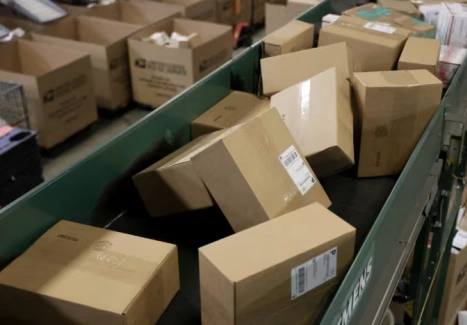Starting August 29, the United States officially ended its long-standing de minimis rule that allowed goods valued at $800 or less to enter the country free of duty and import tax. This change marks a significant shift for the global cross-border e-commerce industry, which relied heavily on this policy to support millions of small parcels shipped to U.S. consumers every day.
According to the Universal Postal Union (UPU), the first day after the policy took effect saw an 81% drop in international postal clearance volumes in the United States. As of September 6, 88 postal operators worldwide have fully or partially suspended their postal services to the U.S. The UPU confirmed that it is urgently developing a technical solution to help its member operators resume parcel deliveries.
Following the U.S. announcement, postal authorities in several major countries — including the UK, Germany, France, and Australia — issued public notices that they will no longer accept most packages bound for the U.S.
Industry Impact
The de minimis rule, also known as the “minimum threshold rule,” had allowed shipments with a declared value under \$800 to enter the U.S. without duty or import tax (except for restricted goods such as alcohol and tobacco). The threshold was last raised from \$200 to \$800 in 2016 to simplify customs clearance, lower transaction costs, and encourage small-scale trade and cross-border e-commerce.
While the rule greatly benefited consumers and businesses by streamlining logistics and reducing costs, it also raised concerns among U.S. manufacturers and policymakers, who argued that it created competitive pressure from low-cost imports and reduced tariff revenue.
The sudden removal of this exemption is expected to disrupt global postal networks and significantly impact small and medium-sized enterprises that rely on low-value, direct-to-consumer shipping. Businesses may face higher customs duties, longer clearance times, and increased operational costs — all of which could reshape the economics of cross-border e-commerce.

What Businesses Should Do Next
For companies shipping to the U.S., it is now crucial to:
- Reassess landed costs – Factor in duties, taxes, and brokerage fees in your pricing.
- Consider alternative logistics solutions – Such as DDP (Delivered Duty Paid) air and ocean freight services to streamline customs clearance.
- Stay informed – Monitor UPU and U.S. CBP updates for any technical solutions or regulatory changes.
At Goodship56, we provide end-to-end logistics solutions from China to the U.S., including air freight, ocean freight, customs clearance, and last-mile delivery. Our team can help businesses adapt to the new import tax rules and maintain a smooth supply chain despite these regulatory changes.
[Contact us today] to explore compliant, cost-effective shipping options for your U.S. orders.

 Good
Good
 Sep 09 2025
Sep 09 2025


 Home
Home





 Email:
Email:
 Address: 216, Building A1, Fuhai Industrial Zone, Fuyong Community, Fuyong Street, Baoan District, Shenzhen, China
Address: 216, Building A1, Fuhai Industrial Zone, Fuyong Community, Fuyong Street, Baoan District, Shenzhen, China




